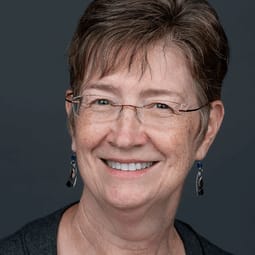
Vicki Wysocki
Professor, Department of Chemistry and Biochemistry, The Ohio State University, Columbus, Ohio, USA
False

Professor, Department of Chemistry and Biochemistry, The Ohio State University, Columbus, Ohio, USA
Raising the field’s profile… I'm always puzzled when I meet scientists who don't seem to understand that analytical science is a field of research. Part of the problem is universities that don't provide structures that value analytical science – with divisional structures that don't include analytical science at all. Over the years, I've attended topical conferences where attendees come up to me and ask what molecules or disease I work on. They seem surprised that mass spectrometry instrument and method development could be considered a field of study! Fortunately, funding agencies and industry value analytical science. The fact that my graduating PhD students always have multiple job offers is telling – there is high demand for scientists who understand the value of measurement science.
Analytical scientists are broad thinkers who often move into management career tracks in industry because of their abilities to assess the big picture. R. Graham Cooks probably said it best when I was deciding on applying for analytical chemistry faculty positions vs. positions in a different division of chemistry – he said something along the lines of "as an analytical chemist, you will be able to work on anything you choose, but if you choose x, you'll have some restrictions because that field doesn't value e.g., gas-phase ion chemistry." Graham has been correct in all of the career advice he's given to me; I am grateful that I took his advice to follow the path to become an analytical scientist.
Missing from the toolbox? I am hopeful that in the future, we will integrate the data from multiple tools much better than we've been able to. The key is creative computational work that brings data from disparate techniques together. Although there is concern about the role of artificial intelligence in our future, I can't wait to see the advances that can be made with modern analytical science when we apply modern computational approaches to our measurement science data and other available data, including personal and health care data sets.
An inspirational leader? A leader who has inspired me is Professor Dame Carol V. Robinson of the University of Oxford. Carol began an industrial job with Pfizer at age 16. After entering part-time studies initially, she completed her Bachelor's and PhD degrees. When the time was right, she took a career break to raise her children, something women are told they shouldn't do. Her science has always been creative, and she continues to inspire others by sharing her science and personal stories. She has had an amazing career that includes being a faculty member, serving the community in many ways, e.g., as a journal editor and serving as President of the UK Royal Society of Chemistry, starting a company (OMASS Therapeutics), winning an exceptional number of awards, and serving as the first director of a major institute (Kavli Institute for Nanoscience Discovery at Oxford). Carol's science continues to be amazing, but she is generous with her willingness to share her results, expertise, and inspirational thoughts with the broad community. When I first decided to join the native mass spectrometry field, Carol welcomed me to her lab for a 6-week summer visit. I appreciated the chance to watch her run her group. She was, and still is, incredibly "hands-on" in the sense of being present – walking from desk to desk or instrument to instrument to discuss progress with her group members.
Receive the latest pathologist news, personalities, education, and career development – weekly to your inbox.

False
False
False